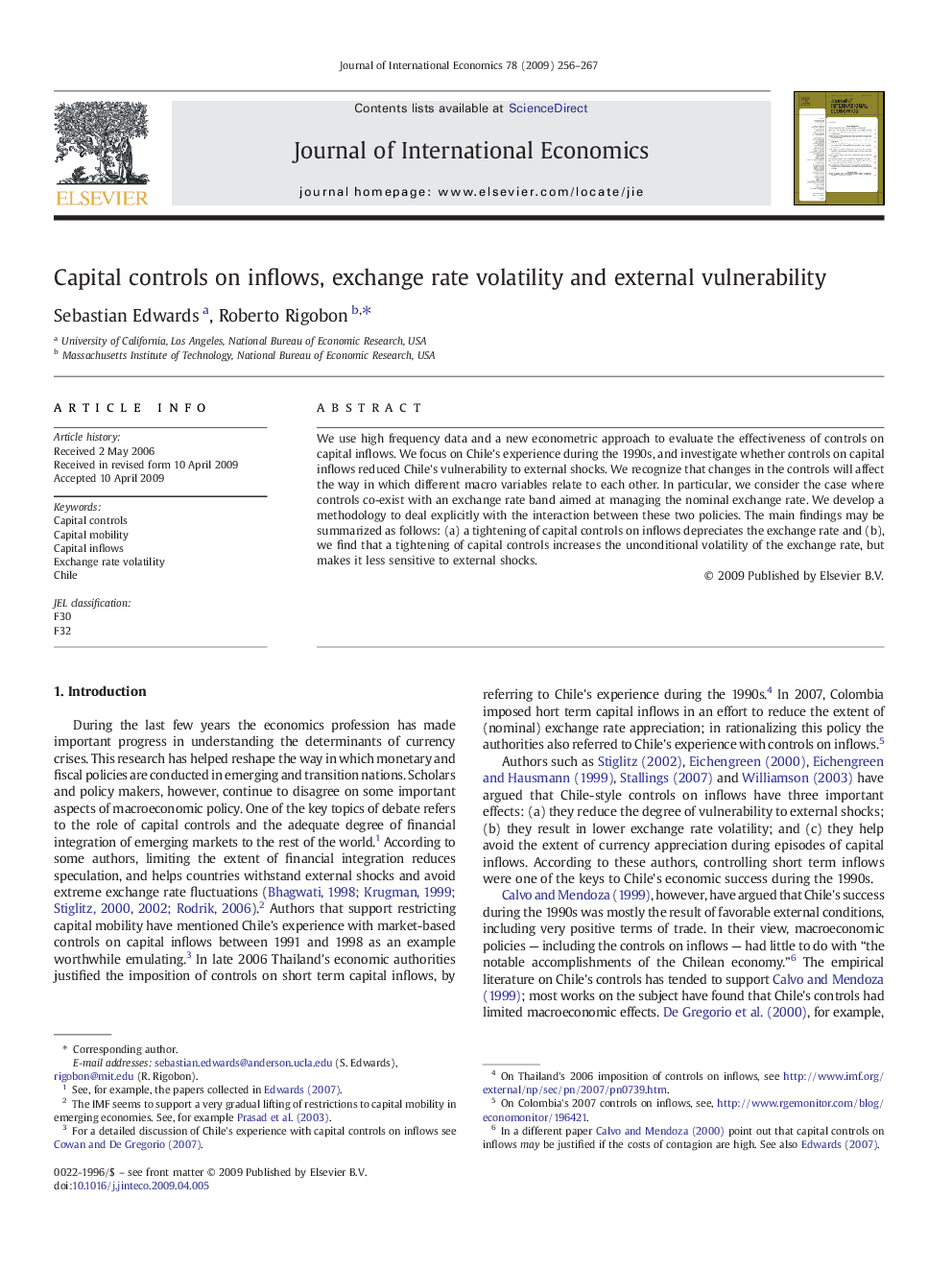| Article ID | Journal | Published Year | Pages | File Type |
|---|---|---|---|---|
| 963111 | Journal of International Economics | 2009 | 12 Pages |
Abstract
We use high frequency data and a new econometric approach to evaluate the effectiveness of controls on capital inflows. We focus on Chile's experience during the 1990s, and investigate whether controls on capital inflows reduced Chile's vulnerability to external shocks. We recognize that changes in the controls will affect the way in which different macro variables relate to each other. In particular, we consider the case where controls co-exist with an exchange rate band aimed at managing the nominal exchange rate. We develop a methodology to deal explicitly with the interaction between these two policies. The main findings may be summarized as follows: (a) a tightening of capital controls on inflows depreciates the exchange rate and (b), we find that a tightening of capital controls increases the unconditional volatility of the exchange rate, but makes it less sensitive to external shocks.
Related Topics
Social Sciences and Humanities
Economics, Econometrics and Finance
Economics and Econometrics
Authors
Sebastian Edwards, Roberto Rigobon,
